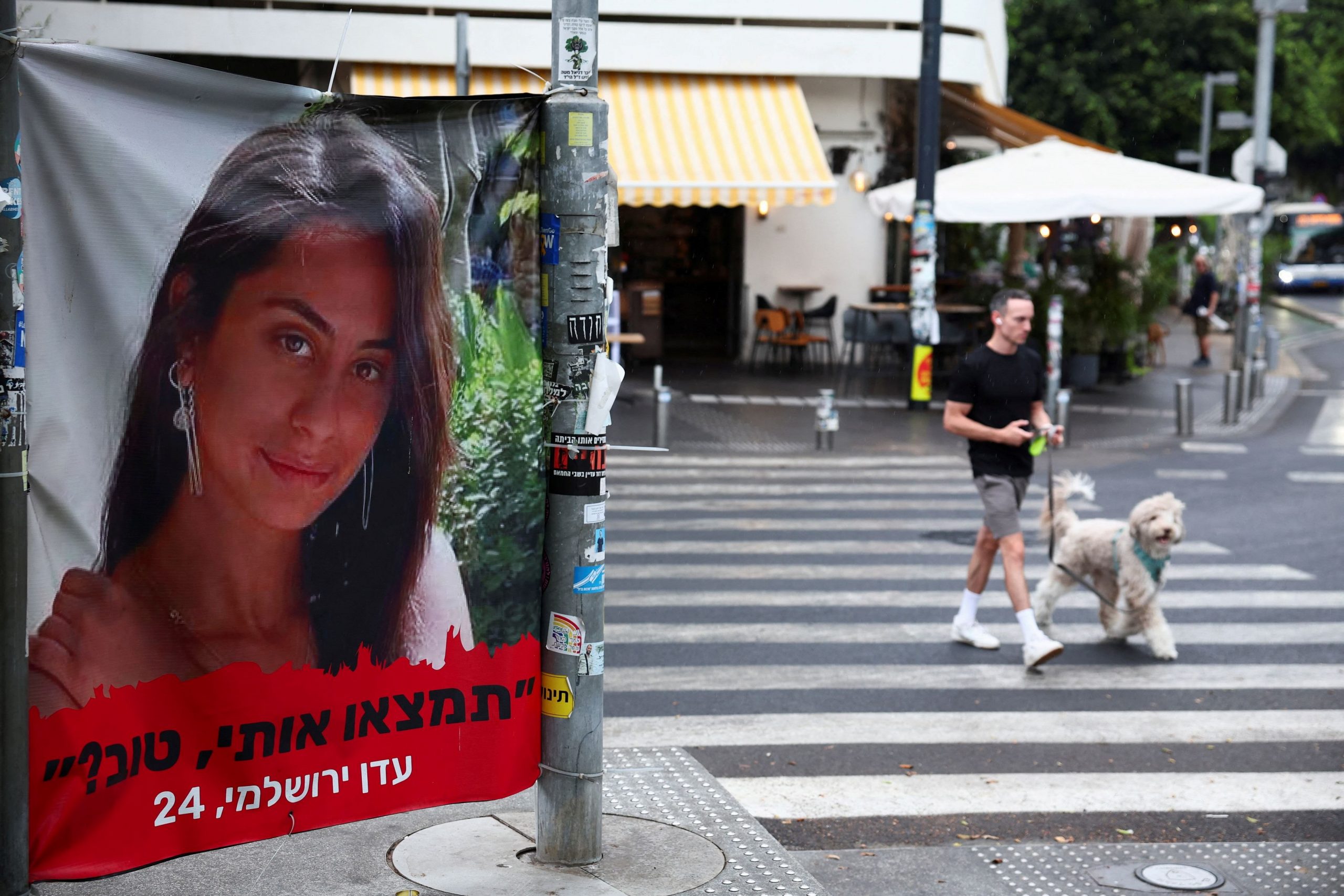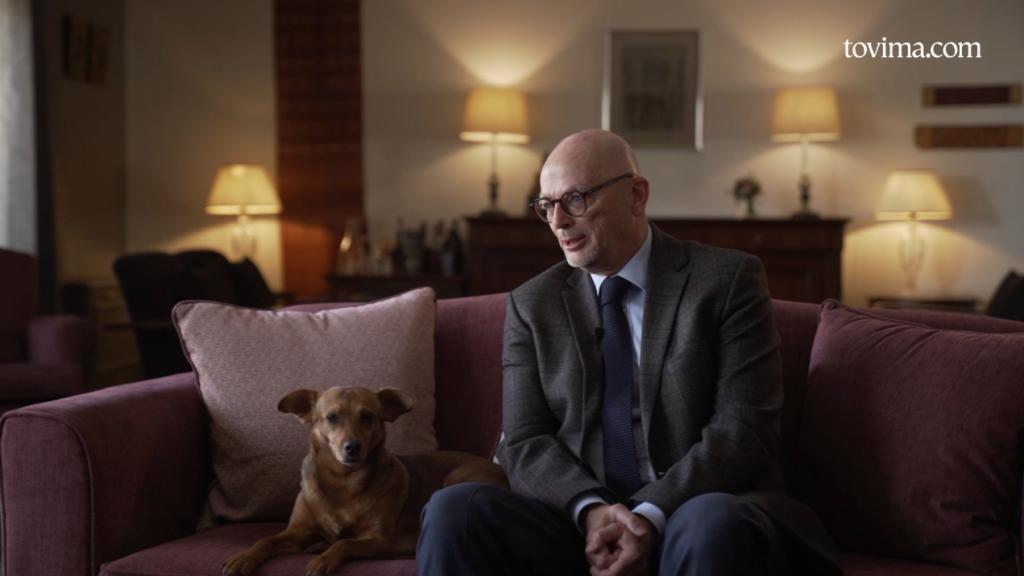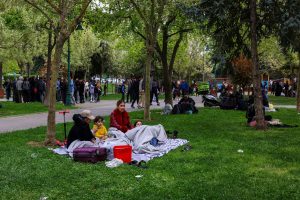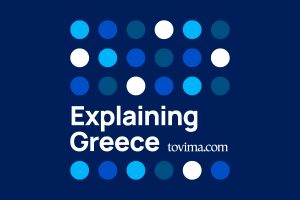A disagreement over a tiny strip of land along Gaza’s border with Egypt has become one of the major stumbling blocks to reaching a cease-fire.
The Philadelphi corridor, also known as Salah al Din Axis, is a nearly nine-mile-long, 100-yard-wide area inside Gaza. It has played a key role for Hamas to smuggle arms and material across the border from Egypt, including through tunnels that the militants dug under the frontier.
Israeli troops are currently in control of the corridor.
“The corridor is the oxygen of Hamas,” Prime Minister Benjamin Netanyahu said last week, explaining why he believes Israeli troops should remain there until there is a new agreed-upon way for securing the area.
At the heart of the disagreement are two seemingly irresolvable positions: The U.S. and Israel want to secure an initial cease-fire without resolving how to secure the Philadelphi corridor. “Nothing in the agreement mentions the Philadelphi corridor,” a senior U.S. administration official told reporters in a call Wednesday.
That question and other thorny issues would be discussed after an initial cease-fire is in place and would be carried out in a second phase, according to the U.S. and Israel.
Hamas, on the other hand, is insisting that Israeli troops leave the area to reach any sort of cease-fire, which is also what Egypt publicly says it wants.
That disagreement—along with exchange of Hamas-held hostages for Palestinian prisoners in Israel—has delayed a cease-fire deal after months of painstaking negotiations. Yet the issue has caused confusion and consternation throughout the talks as well as conflict within Israeli leadership over Netanyahu’s demand.
Here are the positions of the various parties:
The U.S. proposal
The current U.S.-backed “bridging proposal” is intended to overcome disputes between Israel and Hamas for a cease-fire. During the initial phase, which would stop the fighting for six weeks, Israel is only required to withdraw troops from what are described as densely populated areas.
Israel over the past couple of weeks proposed a significant reduction of its forces in the corridor, as it is adjacent to Rafah city, but not a complete withdrawal, the senior U.S. administration official said. Phase one, doesn’t specifically address the Philadelphi corridor, though the Israeli commitment to withdraw from the heavily populated area will thin out the Israeli military presence there.
The conditions for a full pullout would be discussed during the cease-fire, which could be extended beyond six weeks. A complete Israeli troop withdrawal, including from the Philadelphi corridor, would take place in the second phase if negotiations during the initial cease-fire are successful. The third phase would involve the reconstruction of Gaza.
There are a number of ideas for how the Philadelphi corridor might be secured if Israeli forces were to leave in the second phase, including some ideas that involve technology, such as an underground barrier and surveillance equipment. But the U.S. hasn’t publicly spelled out the ideas in its proposal, and there is no agreed plan for how to secure the corridor without Israeli troops.
The Israeli view
Netanyahu says he is firmly opposed to leaving the corridor at this time, insisting the presence of Israeli troops there is essential to prevent Hamas from rearming and critical to Israel’s stated war goals: destroying Hamas’s military and governing capabilities, as well as preventing Gaza from threatening Israel’s security in the future.
Netanyahu also argues that if Israel leaves the corridor, Hamas will be able to smuggle hostages out of Gaza and into Egypt—and from there beyond Israel’s reach. “Gaza cannot have a future if Gaza remains porous and you can enable rearmament of terrorists through the Philadelphi corridor,” he said in a news conference Wednesday night.
Though Netanyahu has indicated that he is open to removing all of the Israeli troops from the corridor at a later point if a suitable security arrangement can be devised, he is facing dissension from others inside the country who favor a more immediate pullout.
Israeli Defense Minister Yoav Gallant and Benny Gantz, a former war cabinet member and now opposition leader, both said this week that Israel didn’t need troops on the corridor at this time. Gallant argued securing the release of hostages was more important than leaving troops along the border in phase one, while Gantz maintained Israeli forces could return to the area at any point.
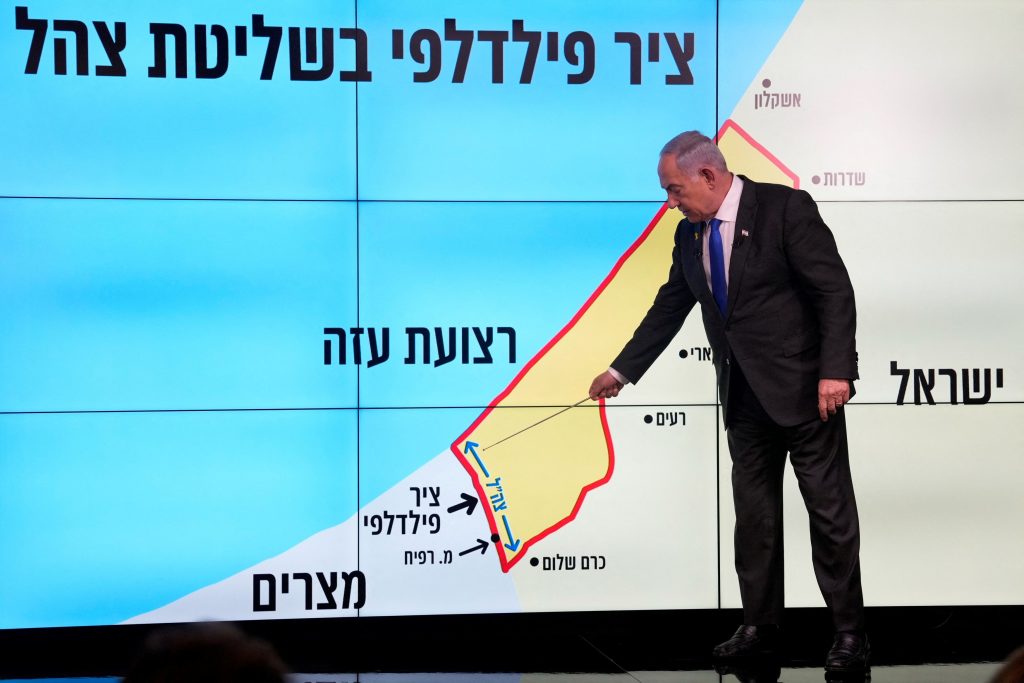
Israeli Prime Minister Benjamin Netanyahu stands before a map of the Gaza Strip, telling viewers that Israel must retain control over the “Philadelphi corridor,” a strategic area along the territory’s border with Egypt, during a news conference in Jerusalem, September 2, 2024. Hebrew onscreen reads, “Philadelphi corridor under Israeli military control”. Ohad Zwigenberg/Pool via REUTERS
Egyptian resistance
Egypt is openly rejecting Netanyahu’s position and says it wants Israeli troops to withdraw as part of any initial cease-fire. Cairo has long maintained it has secured the passageway properly and is against the presence of Israeli troops there. The Egyptian government, however, may be open to some Israeli troops staying in phase one, if there is a U.S.-backed guarantee that they would eventually leave, regardless of the outcome of phase two.
As part of the cease-fire negotiations, Egypt already agreed to build a new U.S.-financed barrier along the border with sensors and security cameras, though there are disagreements about how much access Israel would get to the data. Cairo also asked the U.S. for written guarantees that Israel would stop fighting the war indefinitely and never return to the corridor or the Rafah crossing along the border, even if the second phase of negotiations fall apart.
Egyptian officials say a continued Israeli military presence on the Gaza border raises risks for the Camp David Accords that led to the 1979 peace treaty between the two countries and underpins their national security.
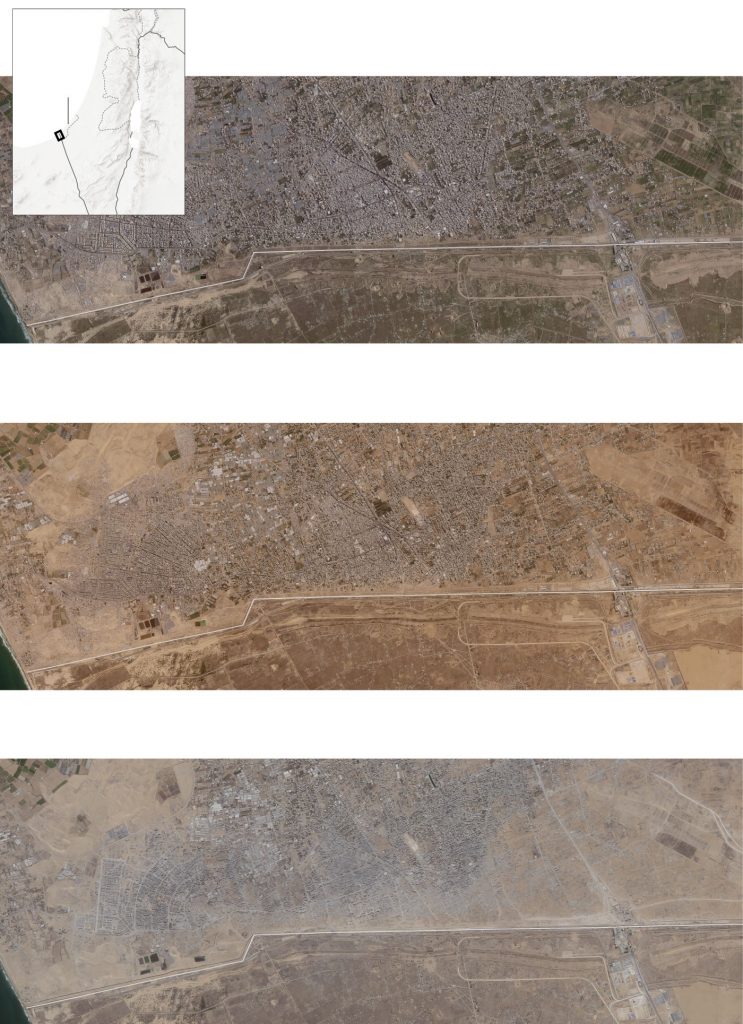
Hamas’s reluctance
Hamas continues to insist there can be no agreement until Israel fully withdraws from Gaza, including the Philadelphi corridor. The militant group says Israelis must leave the corridor to conclude a phase-one deal, in part, because they fear that phase two may never come.
Some U.S. officials also said that it remains unclear whether Hamas leader Yahya Sinwar wants a cease-fire, though they believe that Hamas field commanders would welcome a break in the fighting.
Husam Badran, a member of the political bureau of Hamas, told Al Jazeera that Netanyahu was to blame for the lack of a cease-fire, according to a post Saturday on the militant group’s Telegram account. It cited the Israeli leader’s position, among other issues, on the Philadelphi corridor.
